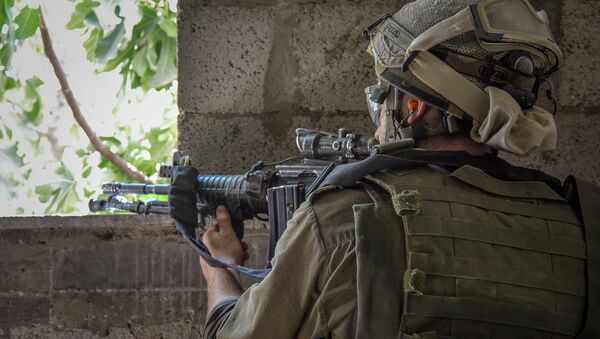Adalah and the Gaza-based Al Mezan Center for Human Rights are appealing a lower court's 2018 denial of the case of Palestinian high school student Attiya Nabaheen, who was shot while on his family's property on his 15th birthday in 2014 by Israeli soldiers, Palestinian news source Wafa reports. Nabaheen is confined to a wheelchair as a result of his injuries. An Israeli lower court found in November 2018 that Nabaheen could not seek restitution from the Israel Defense Force because as a resident of Gaza he lives in "enemy territory," as an Adalah press release described.
In 2007, Israel declared Gaza "enemy territory." In 2012, Amendment No. 8 to Israel's Civil Wrongs Law made residents of an "enemy territory" ineligible to seek compensation from Israel for civil damages, Adalah notes. The rationale for the law, the Jerusalem Post reports, is that Hamas, the ruling party in Gaza, remains in a state of war with Israel.
Adalah and Al Mezan argue that the 2012 amendment violates both Israeli and international law.
"For many years, Israel's Civil Wrongs Law has denied Palestinian victims in Gaza access to remedies they are entitled to, as the law provides that Israel isn't liable for acts performed during combat actions of the military," an Adalah press release from February 10 quotes Al Mezan Director of Communications Mahmoud AbuRahma as saying. "Amendment No. 8 has expanded the exceptions, and it applies regardless of the legality of the army's conduct. Worse, the court ruling deems all Gaza residents, including civilians like the teenager Attiya Nabaheen, ineligible for compensation merely because of where they reside. Amendment No. 8 contradicts the principles of the rule of law and justice, and must be cancelled."
The Jerusalem Post notes that the law does not protect IDF soldiers from prosecution for criminal violations. Those who suffer accidental injuries like Nabaheen's, incurred in the course of a military operation, are provided no avenues for compensation, however. And Adalah points out that in other cases, if Gazans wish to file a tort claim in Israel, "they must submit a notification with the Ministry of Defence within 60 days from the date of the incident. They must pay a court guarantee of thousands of US dollars. And they must give power of attorney to lawyers in Israel, in person, and obtain permits to give witness statements in court," a set of conditions virtually impossible to meet for Gazan residents, the majority of whom live in poverty and often lack access to basic utilities and medical services.




